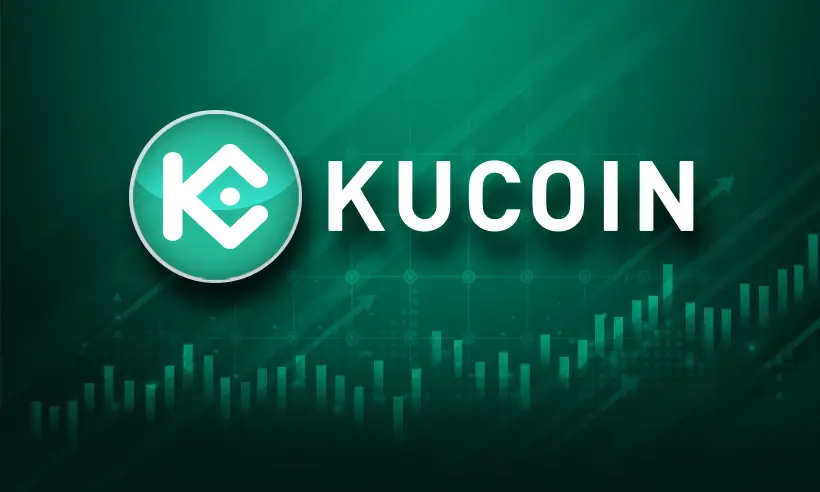-
 Bitcoin
Bitcoin $103,972.0548
-0.41% -
 Ethereum
Ethereum $2,507.7551
-3.09% -
 Tether USDt
Tether USDt $1.0001
0.02% -
 XRP
XRP $2.3654
-3.95% -
 BNB
BNB $650.0713
-1.69% -
 Solana
Solana $172.5109
-2.42% -
 USDC
USDC $0.9997
-0.02% -
 Dogecoin
Dogecoin $0.2312
-6.80% -
 Cardano
Cardano $0.8038
-4.29% -
 TRON
TRON $0.2651
-0.09% -
 Sui
Sui $4.0060
-1.25% -
 Chainlink
Chainlink $17.0053
-1.94% -
 Avalanche
Avalanche $24.7119
-4.51% -
 Stellar
Stellar $0.3057
-4.28% -
 Shiba Inu
Shiba Inu $0.0...01587
-6.10% -
 Hedera
Hedera $0.2058
-5.97% -
 Toncoin
Toncoin $3.4100
-2.26% -
 Hyperliquid
Hyperliquid $24.8813
-4.62% -
 Bitcoin Cash
Bitcoin Cash $407.8371
-5.21% -
 Polkadot
Polkadot $5.0856
-3.53% -
 Pi
Pi $1.1311
45.20% -
 UNUS SED LEO
UNUS SED LEO $8.3403
1.05% -
 Litecoin
Litecoin $99.8674
-4.83% -
 Monero
Monero $332.9490
2.49% -
 Pepe
Pepe $0.0...01355
-2.37% -
 Bitget Token
Bitget Token $4.8630
-2.12% -
 Dai
Dai $0.9999
-0.01% -
 Ethena USDe
Ethena USDe $1.0002
0.00% -
 Uniswap
Uniswap $6.8955
-8.08% -
 Bittensor
Bittensor $458.4408
-1.29%
How to trade KCS coins to others?
To effectively trade KCS coins, traders should create a KuCoin account, fund it with cryptocurrencies, navigate to the KCS trading page, understand the interface, place limit orders to buy or sell KCS, and utilize the benefits of KCS on the KuCoin exchange, such as trading fee discounts, bonus rewards, and voting rights.
Nov 07, 2024 at 09:46 pm

How to Trade KCS Coins to Others: A Comprehensive Guide
KuCoin Shares (KCS) are the native cryptocurrency of the KuCoin exchange. They offer various benefits to holders, including trading fee discounts, bonus rewards, and voting rights in the KuCoin community. To leverage these advantages, it is important to understand how to effectively trade KCS coins with others. This comprehensive guide will provide you with step-by-step instructions on how to accomplish this process seamlessly:
Step 1: Create a KuCoin Account
Before initiating any trades, you must establish an account on the KuCoin exchange. The registration process is straightforward and can be completed in a few minutes. To create an account, visit the KuCoin website and click on the "Sign Up" button. Provide your email address, create a strong password, and agree to the terms of service. You will receive an email containing a verification link. Click on the link to activate your account.
Step 2: Fund Your Account with Cryptocurrencies
To trade KCS coins, you need to fund your KuCoin account with cryptocurrencies. KuCoin supports a wide range of cryptocurrencies, including Bitcoin (BTC), Ethereum (ETH), and USDT. Choose the cryptocurrency that you prefer and initiate a deposit by navigating to the "Assets" section of your account. Select "Deposit" and follow the on-screen instructions to provide the necessary details for the transaction.
Step 3: Navigate to the KCS Trading Page
Once your account is funded, proceed to the KCS trading page. On the KuCoin website, hover over the "Markets" tab and select "Spot Trading." In the search bar, type "KCS/USDT" or any other trading pair that involves KCS. This will display the live market data for the selected trading pair.
Step 4: Understand the Trading Interface
The KuCoin trading interface comprises various components. On the left-hand side, you will find the order book, which displays the current buy and sell orders for KCS. The chart in the center of the interface shows the price movements of KCS over time. On the right-hand side, you have the order form where you can specify the details of your trade.
Step 5: Place a Limit Order to Buy or Sell KCS
To buy or sell KCS, you need to place a limit order. In the order form, select "Limit" under the "Order Type" section. Specify the price at which you want to buy or sell KCS, the quantity of KCS you want to trade, and click "Buy KCS" or "Sell KCS." Your order will be added to the order book and executed when the market price reaches your specified price.
Step 6: Monitor Your Order Status
After placing an order, you can monitor its status in the "My Orders" section of your account. This section provides real-time updates on the execution of your order. You can cancel or modify your order if necessary.
Step 7: Receive the Traded KCS Coins
Once your order is executed, the traded KCS coins will be credited to your KuCoin account. You can view your KCS balance in the "Assets" section. From there, you can withdraw your KCS coins to an external wallet or use them for further trading.
Step 8: Utilize KCS Benefits
As a KCS holder, you can enjoy various benefits on the KuCoin exchange. These include:
- Trading fee discounts: KCS holders receive discounted trading fees, which can significantly reduce the cost of trading on KuCoin.
- Bonus rewards: KCS holders are eligible for bonus rewards, including KuCoin Shares Bonus and Referral Bonus.
- Voting rights: KCS holders have the right to participate in KuCoin community governance by voting on proposals that affect the exchange.
By following these steps, you can seamlessly trade KCS coins to others on the KuCoin exchange. Remember to familiarize yourself with the trading interface and use limit orders to manage your trades effectively. As a KCS holder, you can leverage the various benefits offered by the exchange to enhance your trading experience and maximize your earning potential.
Disclaimer:info@kdj.com
The information provided is not trading advice. kdj.com does not assume any responsibility for any investments made based on the information provided in this article. Cryptocurrencies are highly volatile and it is highly recommended that you invest with caution after thorough research!
If you believe that the content used on this website infringes your copyright, please contact us immediately (info@kdj.com) and we will delete it promptly.
- Bring Me The Horizon’s Oli Sykes and partner Alissic announce they are expecting twins.
- 2025-05-12 07:20:13
- Best Meme Coin Presales to Buy This Week—Troller Cat's Game Center Ignites While Dogwifhat, AI Companions Hold
- 2025-05-12 07:20:13
- Trump's Red, White, and Meme-Colored Curveball Derails GENIUS Act
- 2025-05-12 07:15:12
- BTFD Coin (BTFD) – Where Bulls Triple Their Bags
- 2025-05-12 07:15:12
- BTFD Coin: The Breakout Meme Coin That's Turning Heads
- 2025-05-12 07:10:13
- PEPE Price Prediction: Analyst Forecasts Dogecoin-Style Rally Above $10 Billion
- 2025-05-12 07:10:13
Related knowledge

What is Ethereum’s Slashing mechanism and how to punish malicious behavior?
Feb 20,2025 at 03:08am
Key PointsOverview of slashingDifferent types of slashing in EthereumIncentives and consequences of slashingIdentifying and reporting slashed validatorsOngoing discussions and potential improvementsEthereum's Slashing Mechanism: Punishing Malicious BehaviorEthereum's slashing mechanism is an essential tool for ensuring network security and punishing mal...

What is the verifier node of Ethereum and how to become a verifier?
Feb 19,2025 at 06:00pm
The Verifier Node of Ethereum: A Comprehensive GuideKey Points:What is a Verifier Node?How to Become a Verifier NodeResponsibilities and Rewards of a Verifier NodeMinimum Requirements for Becoming a Verifier NodePotential Difficulties in Running a Verifier Node1. What is a Verifier Node?A Verifier Node is an independent entity on the Ethereum network th...

What is Ethereum’s staking, and how to participate and earn money?
Feb 19,2025 at 04:37pm
Key Points:Understanding Ethereum's Staking MechanismSteps to Participate in StakingBenefits and Rewards of StakingSecurity and Risk ConsiderationsTechnical Requirements and Hardware OptionsPotential Challenges and Troubleshooting TipsFAQs on Ethereum StakingWhat is Ethereum's Staking?Proof-of-Stake (PoS) is a consensus mechanism used in blockchain netw...

What is Ethereum’s DAO (Decentralized Autonomous Organization) and how does it work?
Feb 20,2025 at 03:12am
Key PointsDefinition and Structure of a DAOGovernance and Decision-Making in DAOsBenefits and Use Cases of DAOsChallenges and Limitations of DAOsWhat is Ethereum's DAO (Decentralized Autonomous Organization) and How Does It Work?Definition and Structure of a DAOA Decentralized Autonomous Organization (DAO) is an innovative governance and management fram...

What is Ethereum's multi-signature wallet and how to improve security?
Feb 20,2025 at 02:18pm
Key Points:Understanding the Concept of a Multi-Signature WalletBenefits and Drawbacks of Multisig WalletsRequirements for Setting Up a Multisig WalletStep-by-Step Guide to Generating a Multisig WalletImplementing Strategies for Enhanced Security1. Understanding the Concept of a Multi-Signature WalletA multi-signature (multisig) wallet in the Ethereum e...

What is Ethereum's oracle and how to provide data for smart contracts?
Feb 21,2025 at 01:30am
Key Points:Understanding the concept of oracles in EthereumExploring different types of oraclesDetailed guide on how to provide data for smart contractsAddressing potential challenges and considerationsWhat is Ethereum's Oracle?Oracles are crucial components in the Ethereum ecosystem, enabling smart contracts to access real-world data and off-chain even...

What is Ethereum’s Slashing mechanism and how to punish malicious behavior?
Feb 20,2025 at 03:08am
Key PointsOverview of slashingDifferent types of slashing in EthereumIncentives and consequences of slashingIdentifying and reporting slashed validatorsOngoing discussions and potential improvementsEthereum's Slashing Mechanism: Punishing Malicious BehaviorEthereum's slashing mechanism is an essential tool for ensuring network security and punishing mal...

What is the verifier node of Ethereum and how to become a verifier?
Feb 19,2025 at 06:00pm
The Verifier Node of Ethereum: A Comprehensive GuideKey Points:What is a Verifier Node?How to Become a Verifier NodeResponsibilities and Rewards of a Verifier NodeMinimum Requirements for Becoming a Verifier NodePotential Difficulties in Running a Verifier Node1. What is a Verifier Node?A Verifier Node is an independent entity on the Ethereum network th...

What is Ethereum’s staking, and how to participate and earn money?
Feb 19,2025 at 04:37pm
Key Points:Understanding Ethereum's Staking MechanismSteps to Participate in StakingBenefits and Rewards of StakingSecurity and Risk ConsiderationsTechnical Requirements and Hardware OptionsPotential Challenges and Troubleshooting TipsFAQs on Ethereum StakingWhat is Ethereum's Staking?Proof-of-Stake (PoS) is a consensus mechanism used in blockchain netw...

What is Ethereum’s DAO (Decentralized Autonomous Organization) and how does it work?
Feb 20,2025 at 03:12am
Key PointsDefinition and Structure of a DAOGovernance and Decision-Making in DAOsBenefits and Use Cases of DAOsChallenges and Limitations of DAOsWhat is Ethereum's DAO (Decentralized Autonomous Organization) and How Does It Work?Definition and Structure of a DAOA Decentralized Autonomous Organization (DAO) is an innovative governance and management fram...

What is Ethereum's multi-signature wallet and how to improve security?
Feb 20,2025 at 02:18pm
Key Points:Understanding the Concept of a Multi-Signature WalletBenefits and Drawbacks of Multisig WalletsRequirements for Setting Up a Multisig WalletStep-by-Step Guide to Generating a Multisig WalletImplementing Strategies for Enhanced Security1. Understanding the Concept of a Multi-Signature WalletA multi-signature (multisig) wallet in the Ethereum e...

What is Ethereum's oracle and how to provide data for smart contracts?
Feb 21,2025 at 01:30am
Key Points:Understanding the concept of oracles in EthereumExploring different types of oraclesDetailed guide on how to provide data for smart contractsAddressing potential challenges and considerationsWhat is Ethereum's Oracle?Oracles are crucial components in the Ethereum ecosystem, enabling smart contracts to access real-world data and off-chain even...
See all articles





















































































